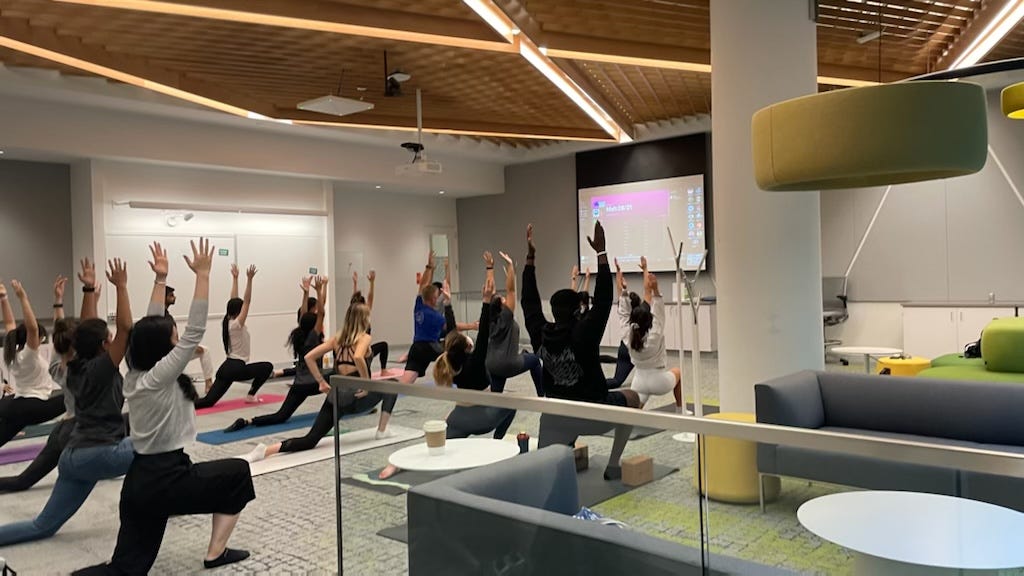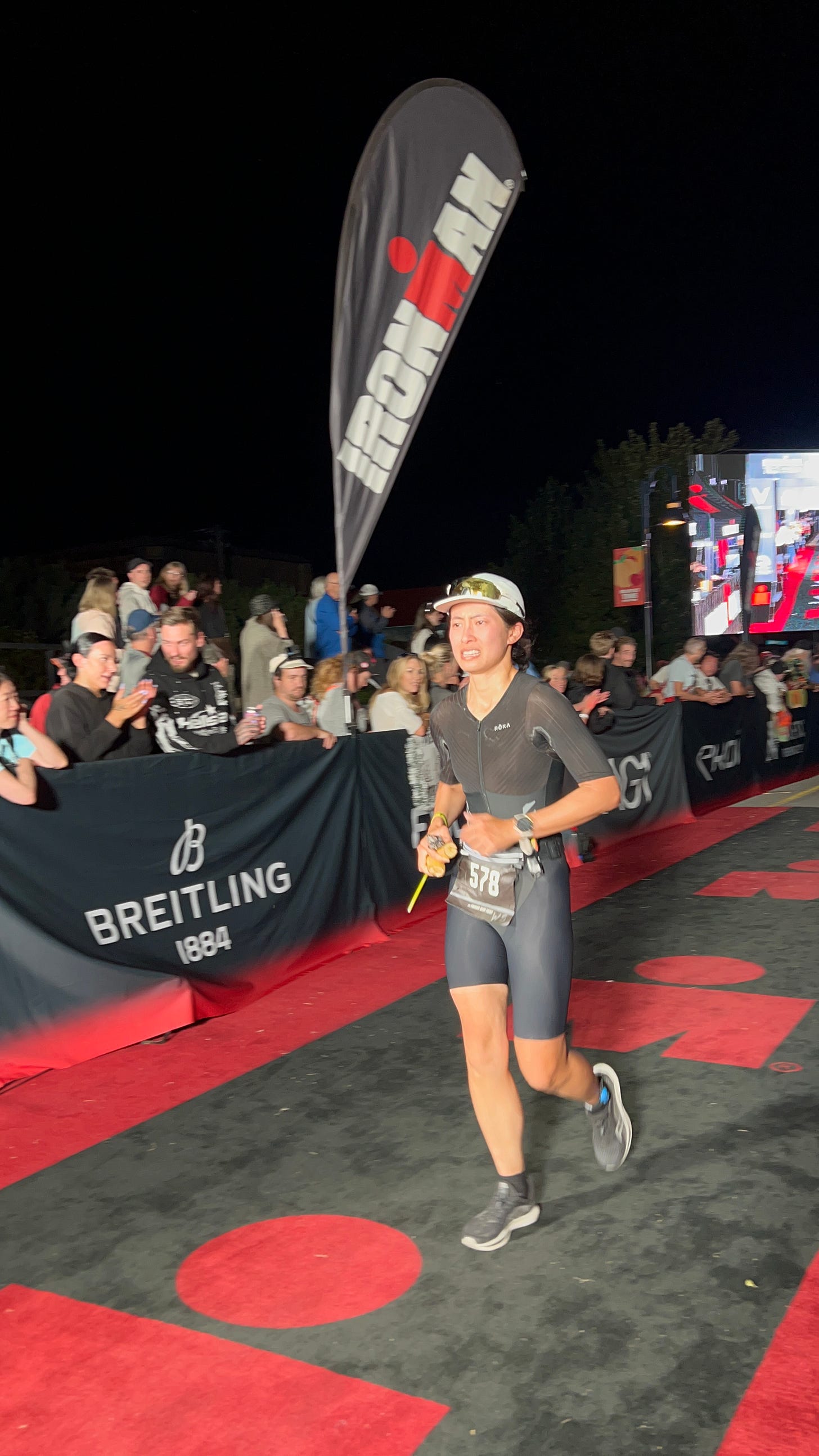With no prior experience in swimming, cycling, or running; the idea of completing an Ironman once seemed impossible. After pivoting to product management and launching meeting lifecycle experiences for Microsoft Teams at the height of the COVID-19 pandemic, I found passion in running.
“A key to work-life balance was to find passion outside of work to create balance and energy for bold goals in both.” — Jeff Teper, Microsoft President
In March 2021, I went for my first run. Every half-kilometre left me gasping for breath. My muscles and joints were in agony. If I wanted to stay in shape during lockdown, I needed to learn how to run. One of the greatest impediments to getting good at something is being bad at it initially—this is the beginner’s blessing.


I started to love long-distance running as its essence starts with why. I’m always in a state of flow while I’m running. Flow states are governed by the loss of time and the hallmark of people who are great at what they do. I want to engage in activities that make me lose track of time and feel elated. The long game isn’t about being a workaholic.
“All organizations start with WHY, but only the great ones keep their WHY clear year after year. Those who forget WHY they were founded show up to the race every day to outdo someone else instead of to outdo themselves. The pursuit, for those who lose sight of WHY they are running the race, is for the medal or to beat someone else.” — Simon Sinek, Start with Why
I never incorporated strength training into my routine and ramped up my mileage too quickly, so I developed a tibia fracture and runner’s knee shortly after. I took several months off from running and decided to complete my Yoga Teacher Training (YTT) and learn how to swim since I didn’t own a bike yet.
Swimming is hard. Swimming well is hard. Swimming fast is hard. Swimming at a consistent pace over a long distance is hard. Swimming with good form is hard. Swimming in open water is hard. This was my swimming form when I first started compared to two years of consistent practice.
“My approach with swimming borders somewhere between passion and obsession. Everyday I’m motivated to get out and get better. It takes years, but I keep chipping away. I have room to grow!” — Sam Long, T100 Singapore
I bought my first bike named Stealth, so I can tri. I registered for a local triathlon as cross-training to prepare for my first marathon. As a result of inexperience and hubris, I developed hypothermia in the last two kilometres of the ride and did not finish (DNF) my first triathlon.
“If you’re certain you’re going to nail it, you’re probably not pushing hard enough.” — John Doerr, Measure What Matters
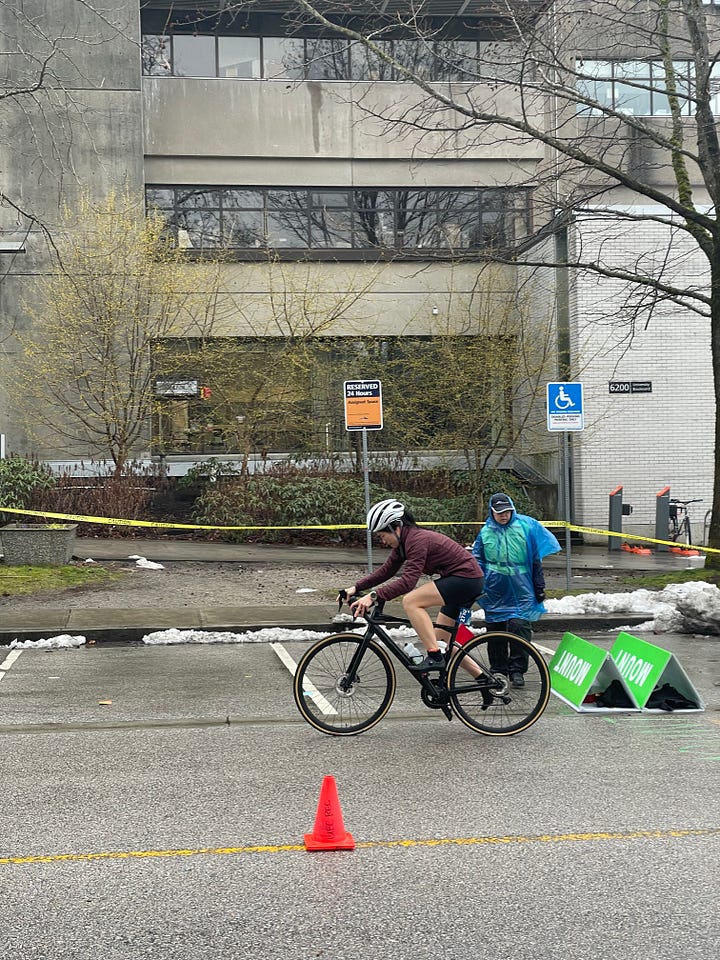

My journey to becoming a triathlete shifted from ego to mastery orientation. What began as an embarrassment and frustration turned into curiosity, acceptance, and humour.
Don’t wish it were easier; wish you were better.
Knowing when to push and quit is key to sustainable success.
It doesn’t matter when and how you started. What matters is the velocity of your growth.
Intentions don’t matter. Actions do. That’s why being ethical is hard.
If something didn’t work in the past, it doesn’t mean it won’t work at another time in your life. These things can coexist:
How you see a situation depends on your circle of competence. You perceive the world not as it is, but as it is for you.
The ability to trust your own vision and execute what you see is a superpower.
Victory is a lot sweeter when you’re the underdog.
Satisfaction comes from impressing yourself. You impress yourself when you push through something you care about that’s hard.
You become what you repeatedly do.

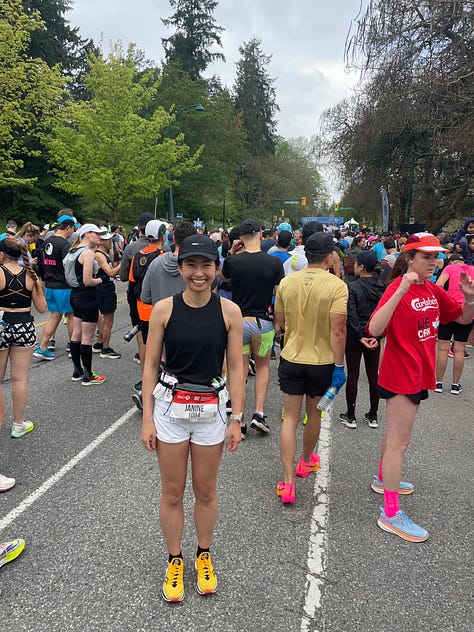

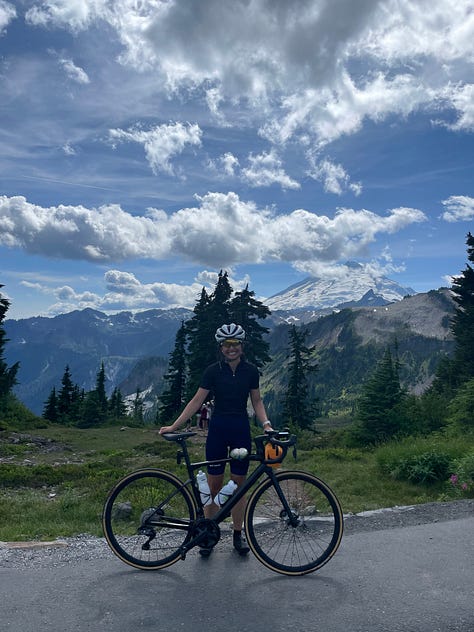

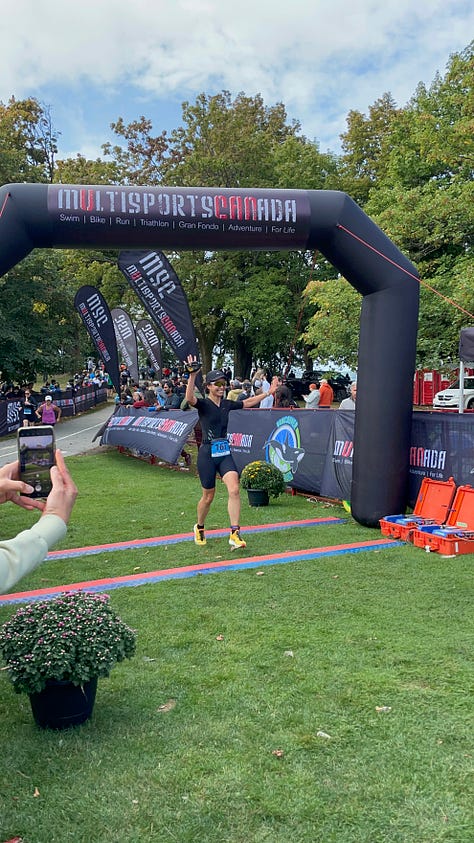
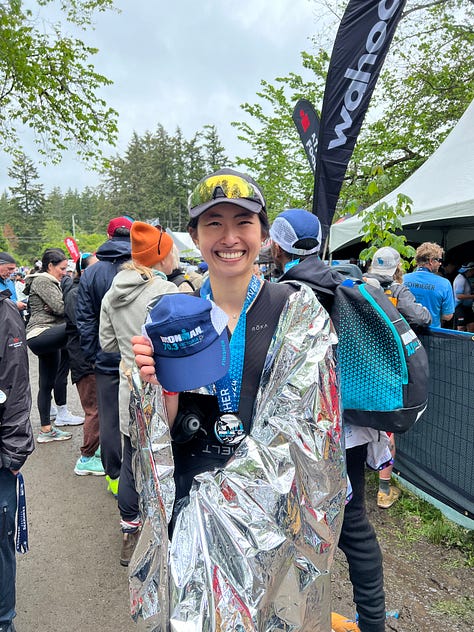


I created my own version of Ben Horowitz’s The Hard Thing About Hard Things: The hard thing isn’t racing the Ironman. The hard thing is fitting Ironman training into your life rather than letting it become your life.
“The hard thing isn’t setting a big, hairy, audacious goal. The hard thing is laying people off when you miss the big goal. The hard thing isn’t hiring great people. The hard thing is when those ‘great people’ develop a sense of entitlement and start demanding unreasonable things. The hard thing isn’t setting up an organization chart. The hard thing is getting people to communicate within the organization you just designed. The hard thing isn’t dreaming big. The hard thing is waking up in the middle of the night in a cold sweat when the dream turns into a nightmare.” — Ben Horowitz, The Hard Thing About Hard Things: Building a Business When There Are No Easy Answers

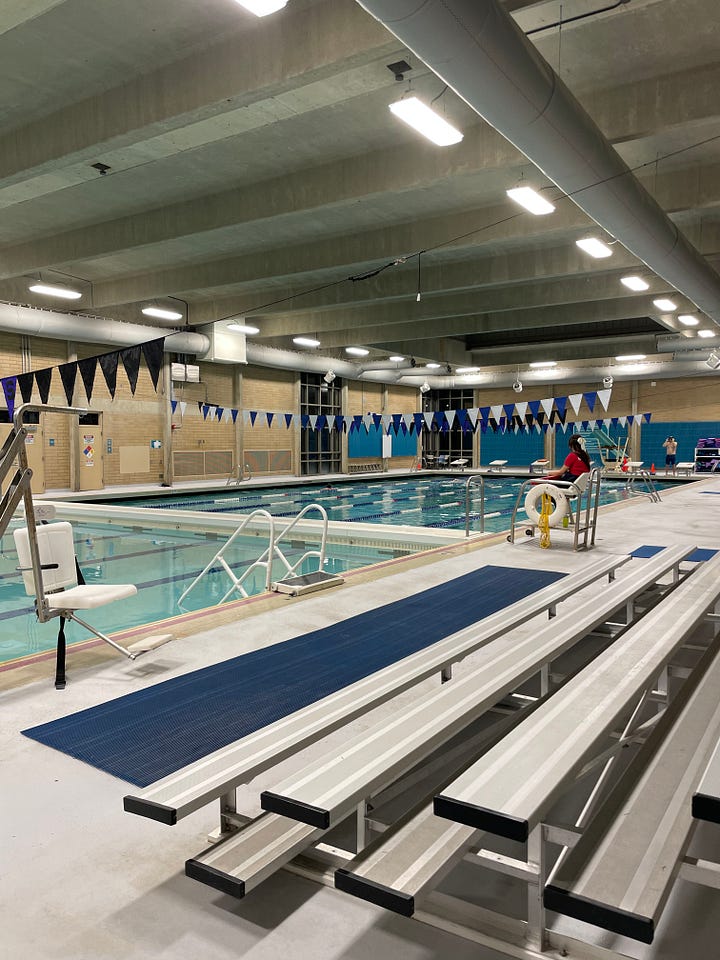
“My parents were tasked with the job of survival and I with self-actualization. The immigrant generational gap is real. What a luxury it is to search for purpose, meaning, and fulfillment.” — Bo Ren
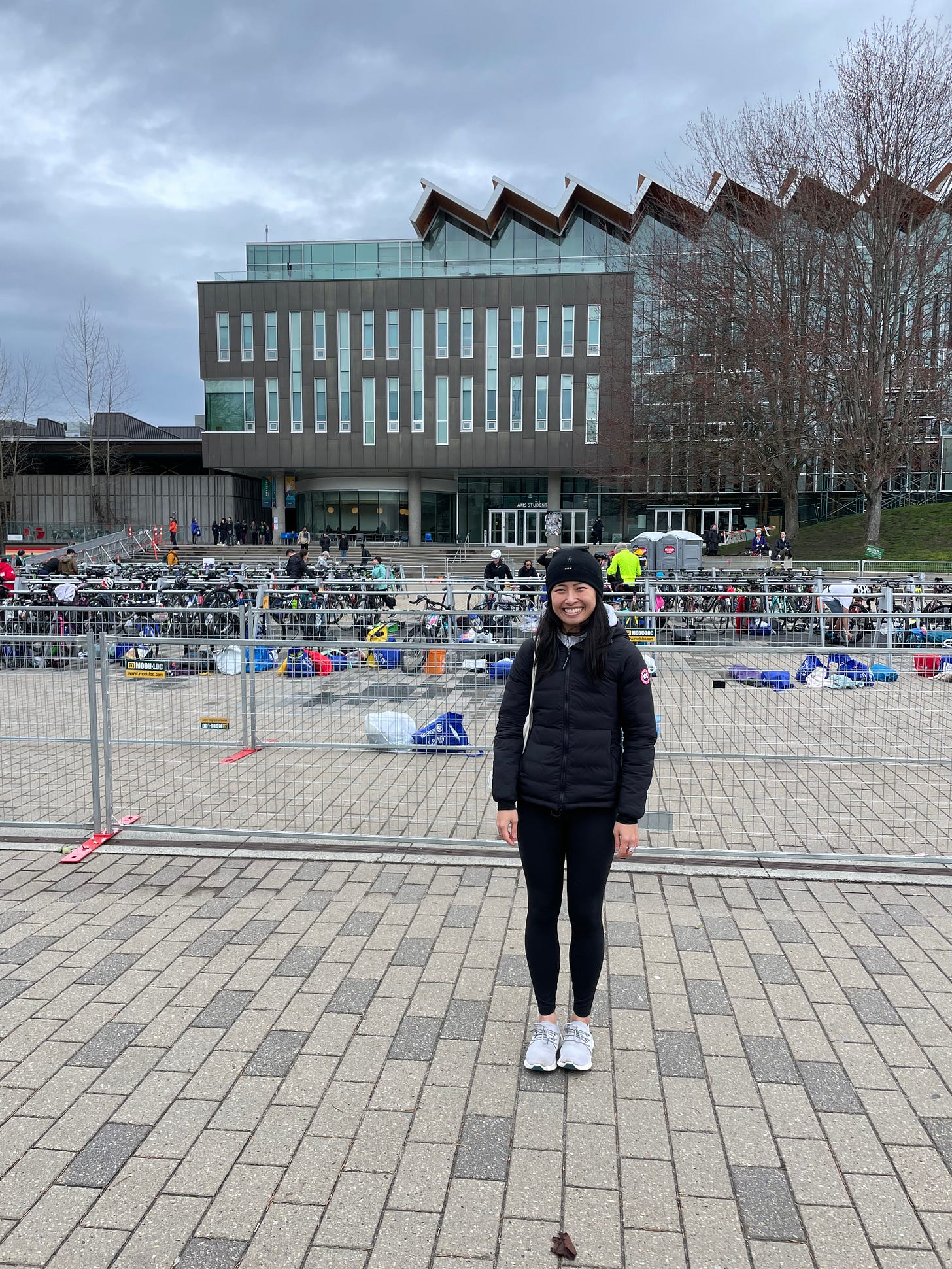
Through triathlon, I developed growth, grit, grace, and a deeper connection with God. I’m eager to continue using this sport as a means to gain powerful life lessons and refine my own consciousness, so I can approach the world with greater understanding, wisdom, humanity, and grace.
I remain hopeful that I will become an Ironman one day. If I do, I’ll post an update here.
Update: I became an Ironman on August 25, 2024 at 8:44pm PDT in Ironman Canada-Penticton.
“You should focus relentlessly on something you’re good at doing, but before that you must think hard about whether it will be valuable in the future.” — Peter Thiel, Zero to One: Notes on Startups, or How to Build the Future
I’m deeply grateful to the following individuals and groups who have been instrumental in my growth: Pamela Dudas, Allan Lee, Wes Jang, Dan Close, Robin Lin, Justin Maguire, Andrew Balbirnie, Rob Wright, VOWSA, Gruppetto, and my family.





